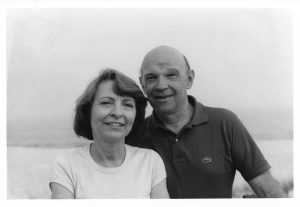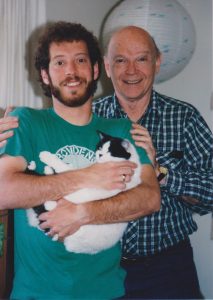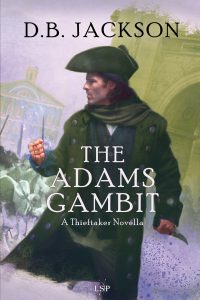Writing saved me this year.
I have been through a lot over the past 12 months, from dealing with the devastating reality of one of my kids having cancer, to coming to terms with my personal mental health issues, to dealing with some physical health issues of my own, to grappling with all the other shit all of us are dealing with these days — the pandemic, economic and social uncertainty, existential threats to our republic, etc., etc., etc.
To the extent that I’ve worked through these issues (and many of them remain works-in-progress), I have done so by drawing on a variety of resources. I have a wonderful support system that consists of family and friends (you know who you are; I am more grateful to you than I can say). I am in therapy. I take a lot of long walks. I birdwatch and play guitar and take photos.
And, of course, I write.
Soon after my daughter’s diagnosis, I threw myself into writing the second Radiants book, Invasives, which will be out early in 2022. The plot doesn’t really touch on the issues I was coping with in my life, but it is a powerful book, one that demanded I plumb the depths of my emotions and consider what it means to be part of a family, in all its definitions. Writing that book got me through the early days of our family crisis. The novel allowed me to channel my grief and fear into something productive, something other than my own bleak moods. I often say that my favorite among my own books is my most recent one, and there will continue to be truth in that long after Invasives is no longer my most recent. But this book will remain special to me for the rest of my life. How could it not?
After finishing the book, I turned to a new editing venture — a freelance editing business — in large part because I needed to keep busy and, at that time, had no idea what I wanted to write next. But I also continued something I began the day after we learned our daughter was ill.
I journaled.
That may not sound revelatory, and the truth is I have journaled off and on throughout my adult life. But journaling about my daughter and her illness, journaling about my emotional health issues, journaling about all the sources of fear and grief and rage and every other emotion I’ve encountered recently, has been a key element of my mental health regimen over the past year.
I don’t journal daily, and I try not to make journaling feel like homework, like something I have to do. But I have found that writing an entry a week works quite well for me. Sometimes I don’t have a lot to say and after a couple of pages I’m done. Other times, I can’t wait to get to the journal and before I know it I’ve written ten pages in the course of an hour or two. Always, though, I give myself room to roam in my writing sessions. I might come to the entry with things I want to jot down, but invariably I go in directions I couldn’t have anticipated. Often I write my way into epiphanies I likely would not have experienced if not for the journal. Sometimes thoughts that have come to me while I journal will, in turn, spark an idea for this blog. Sometimes, they will even creep into my fiction in subtle ways. But I journal for me, for my health and my clarity.
Last year, in my final Writing Wednesday post, I wrote a piece called “Why Do We Create?” In it, I wrote about my various creative endeavors and what I get out of each one. I was trying to make the point that we don’t have to write for profit, for professional advancement, in order for writing to be valuable and rewarding. Little did I know what awaited me in 2021.
And so with the year winding down, and with a new year and new challenges arrayed before us, I wanted to amend a bit what I wrote in last year’s post.
I write because I love it. I write because I have stories burning a hole in my chest waiting to be set free and characters in my mind who clamor for my attention, who are eager to have their stories told. I write as well because it is my profession. I make money doing it. I aspire to critical success, I hope for the respect of my writing colleagues, I wish to please my fans and gain a wider readership. And I write because the act of creation is a balm for the mind and the soul. I draw comfort from the mining of my emotions, from the process of chronicling my personal journey, my struggles and demons as well as my growth and realizations. And I take satisfaction in using the emotions of that journey to animate characters who have different issues in their lives, but whose emotions have the same weight and resonance as my own.
Put another way, I write to heal. To heal myself, and also, perhaps, if I am fortunate, to bring a modicum of healing to those who read my work or my blog, even as they struggle with their own crises and challenges.
I wish all of you a joyful, healthful, healing 2022. And I look forward to continuing our creative journey together.









 I have conversations with my father all the time. Literally every day. Which is kind of remarkable given that we lost him to leukemia twenty-five years ago.
I have conversations with my father all the time. Literally every day. Which is kind of remarkable given that we lost him to leukemia twenty-five years ago. We almost lost Dad before we had him. Which is to say, all of us were almost never here. When Dad was a sophomore at the University of Pennsylvania, he contracted spinal meningitis. Even today, meningitis proves fatal in ten to fifteen percent of cases. Untreated it is nearly always fatal. In 1939, the diagnosis itself was essentially a death sentence. Dad grew very sick very quickly, and fell into a coma. Doctors did all they could for him, including removing a piece of skull from his forehead to relieve some of the pressure on his brain. And still, they were ready to give up on him. But a doctor recommended the use of a revolutionary new drug — penicillin — that he thought might work. Needless to say, the drug saved Dad’s life.
We almost lost Dad before we had him. Which is to say, all of us were almost never here. When Dad was a sophomore at the University of Pennsylvania, he contracted spinal meningitis. Even today, meningitis proves fatal in ten to fifteen percent of cases. Untreated it is nearly always fatal. In 1939, the diagnosis itself was essentially a death sentence. Dad grew very sick very quickly, and fell into a coma. Doctors did all they could for him, including removing a piece of skull from his forehead to relieve some of the pressure on his brain. And still, they were ready to give up on him. But a doctor recommended the use of a revolutionary new drug — penicillin — that he thought might work. Needless to say, the drug saved Dad’s life. I was in the middle of writing a book — Invasives, the sequel to Radiants — and I dove back in. It’s a book about family, as so many of my novels are, and about discovering powers within. It doesn’t take much imagination to understand why I would find that particular story line comforting.
I was in the middle of writing a book — Invasives, the sequel to Radiants — and I dove back in. It’s a book about family, as so many of my novels are, and about discovering powers within. It doesn’t take much imagination to understand why I would find that particular story line comforting. And so around that time, unsure of what to write next, I acted on an idea I’d had for several years. I hung out my virtual shingle as a freelance editor. Work came in quickly, and before I knew it I was editing a series for one friend, and talking to others about future editing projects. I also released the Thieftaker novellas. And prepared for the October release of Radiants. And started gearing up for the Kickstarter for Noir, the anthology I’m co-editing for
And so around that time, unsure of what to write next, I acted on an idea I’d had for several years. I hung out my virtual shingle as a freelance editor. Work came in quickly, and before I knew it I was editing a series for one friend, and talking to others about future editing projects. I also released the Thieftaker novellas. And prepared for the October release of Radiants. And started gearing up for the Kickstarter for Noir, the anthology I’m co-editing for  Shortly after I graduated from college, back in Medieval times, I corresponded with a dear college friend, one who continues to this day to be a close friend. At the time, she was dealing with some emotional issues and had started therapy. “Counseling is the best thing in the world,” she wrote to me. “If everyone was in counseling with a good counselor there would be world peace.”
Shortly after I graduated from college, back in Medieval times, I corresponded with a dear college friend, one who continues to this day to be a close friend. At the time, she was dealing with some emotional issues and had started therapy. “Counseling is the best thing in the world,” she wrote to me. “If everyone was in counseling with a good counselor there would be world peace.”